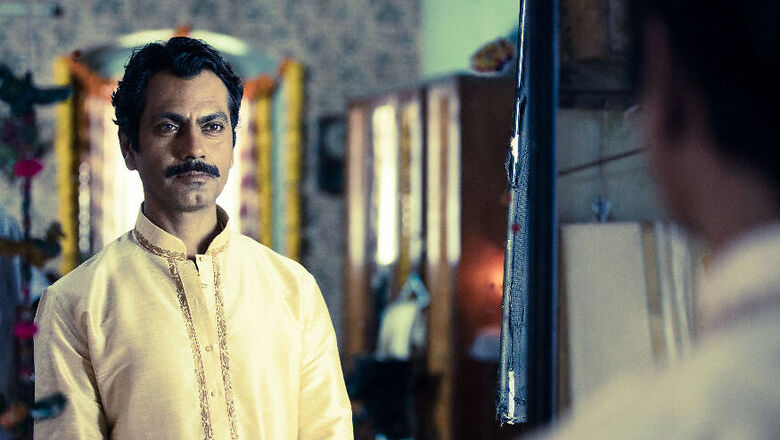
views
When your interview with actor Nawazuddin Siddiqui about his role in the Netflix first India original series Sacred Games begins with the talented artist delivering his now famous dialogue from the crime drama, "Mujhe aisa lagta hai kabhi kabhi ki main hi God hu (sometimes I feel like I am God)", you know your interaction has begun on the right note.
Explaining further, what his character Ganesh Eknath Gaitonde -- a self-proclaimed godlike gangster -- is like, Nawazuddin said in an exclusive interaction with News18.com, "Anurag (Kashyap) sir has directed my portion. Both of us never approached Ganesh Gaitonde's character as a gangster. He is a person who hails from a small village. He has his desires and dreams. So, when he comes into this big city (Mumbai), he faces different situations in his own way."
"As soon as you say the word gangster, you limit the character's portrayal. Just take it as a person who wants to survive and he is a survivor, an extremely strong survivor," Anurag added.
While in conversation with these two talented men -- Anurag Kashyap and Nawazuddin Siddiqui -- who after proving their mettle in the Hindi film industry with films like Satya, Dev D, Black Friday and Gangs of Wasseypur among others are on a mission to take on the digital space, we got to talk at length about the series, creative freedom in the digital platform, Censor Board and more.
Speaking about working for a digital platform versus shooting for a film, Nawazuddinsaid, "It was similar to what we experience while shooting a film. As an actor the process was same. But, if you see it from the perspective of creativity, there's scope of building up the character and understanding it deeply. Rest, just like how he (Anurag) makes a film, the treatment was exactly the same, we didn't feel we were especially creating something for the digital space."
Adding on, Anurag said, "I was told that I don't have to adhere to anything. I could interpret and make it the way I wanted to. So, I never thought that we were working for television or Netflix. We shot it like a film and approached it in a similar manner."
Delving deeper into the subject of digital versus films, when asked if the platform provides more scope for creative freedom, given Anurag’s brush with CBFC over Udta Punjab censor certificate, the filmmaker said, "I have always taken creative freedom. I believe in taking creative freedom. Whenever there were censorship issues, I fought with the Censor Board and got my films out. Here, the only difference is that I don't have to fight. I will save two months of my time."
"Censorship is a political tool. There exists a centuries old censorship law which no one takes the initiative of changing/amending, because it is a political tool to control people. I have fought for so many years, I am not afraid anymore. The thing is you have to just ignore it," Anurag added.
Getting back onto discussing Sacred Games and the characters that all three Saif Ali Khan, Radhika Apte and Nawazuddin Siddiqui play in the series, Anurag told, "Their (Saif and Radhika's) characters are career-oriented, his (Nawaz) character isn't. His character is on a journey of his own. Ganesh Gaitonde's journey is over a period of time, while Saif and Radhika's journey in the series is in the current time. So, there's a lot of difference and there's a wide range."
When asked if they were to make Sacred Games in English, both Nawazuddin and Anurag promptly replied, "No."
Further, talking about how the film was benefited with no restriction on language (let us warn you that your ears are going to bleed with abuses), Anurag said it made the series look more 'real'. "When Sacred Games first came to me in 2014, I turned it down because it was in English. We won't do anything based in India in English."
Explaining why he believes that a multi-lingual approach to the series was the best decision, Anurag said, "When we read about Ganesh Gaitonde in a novel it is a different thing because when one reads a novel, he/she reads it in their own accent. But, when it's translated into a film, it is translated into the accent of the person delivering the dialogues. The accent does not change. It remains constant. So, if a listener is watching it sitting in the UK or Europe, he won't understand the Indian accent."
While concluding our interesting interaction, both Anurag and Nawazuddin spoke about how excited they were that the series was finally releasing after about two years of shooting.
"We are excited because all of us have put in a lot of efforts," said Nawazuddin.
The eight-episode Netflix India original series, which is an adaptation of author Vikram Chandra's novel by the same name, delves into the dark underbelly of the financial capital of India, Mumbai. It releases on the popular streaming site on July 6.




















Comments
0 comment